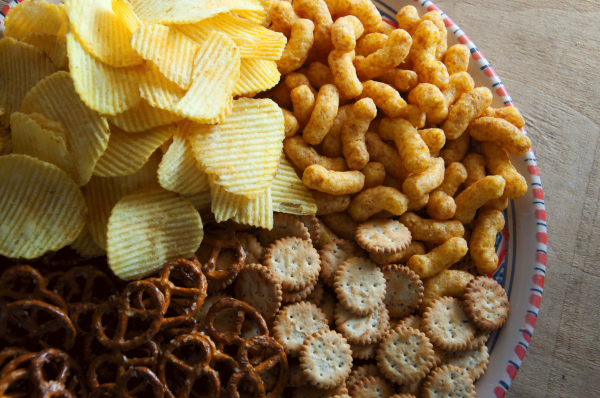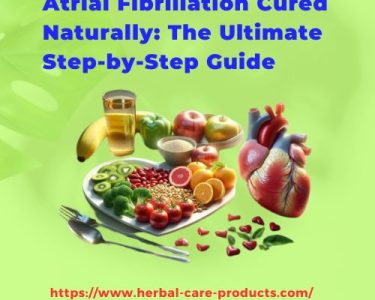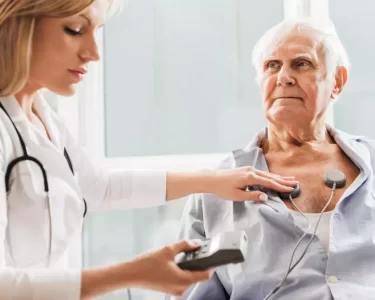Atrial Fibrillation
When the two smaller upper chambers of the heart pulse spasmodically instead of rhythmically, this is known as atrial fibrillation (afib). Blood clots can form inside the heart and move to the brain, causing a stroke if Afib is present. Furthermore, afib frequently creates a hammering or racing sensation in the heart. You may be prescribed drugs to help prevent blood clots or regulate your heartbeat. Dietary adjustments may also be recommended by your doctor. With atrial fibrillation and afib medicines, see your doctor about which foods to avoid.
Related Article: Is Atrial Fibrillation going to get worse?
Alcohol
On an atrial fibrillation diet, the most important thing to avoid is alcohol. Alcohol is a known trigger for atrial fibrillation, hence Afib and alcohol don’t mix. Alcoholic beverages, whether beer, wine, or spirits, may interact with your afib meds. Based on the drugs you take and your unique lifestyle variables, talk to your doctor about whether it’s safe for you to drink alcohol. You may find that you can drink in moderation as long as alcohol does not cause an afib episode.
Caffeine
Caffeine should be avoided if you have been diagnosed with atrial fibrillation since it can provoke an episode. Cutting out caffeinated coffee is a smart start, but examine the labels on other drinks as well. Teas, drinks, and even some over-the-counter drugs may contain caffeine in secret levels. Also bear in mind that herbal supplements and energy drinks may contain guarana, which is a high-caffeine herb. Caffeine and afib don’t often mix well, so be cautious when ingesting caffeine-containing foods, beverages, or supplements from any source.
Grapefruit
Grapefruit contains components that can increase the concentration of afib medicines in your blood to rise. If you take the anticoagulant warfarin (Coumadin), for example, eating grapefruit can cause your blood to become thinner than normal, putting you at risk of bleeding. Grapefruit can interfere with the way drugs for arrhythmia operate to regulate your heart rhythm. Based on the exact afib meds you’re on, ask your doctor if you should avoid grapefruit.
Juice of cranberries
If you use the anticoagulant warfarin, you should avoid cranberry juice. Cranberry juice, like grapefruit, can raise the amount of warfarin in your system, putting you at risk for bleeding. People who use other anticoagulant drugs do not need to limit their cranberry juice consumption. However, keep in mind that any form of fruit juice might cause blood sugar levels to rise. It’s better to eat entire fruit instead of drinking juice in general (and especially if you have diabetes and afib).
Asparagus and Leafy Green Vegetables
If you’re taking warfarin, you should avoid eating or drinking foods or beverages that are high in vitamin K, a nutrient that helps the blood clot. Dark, leafy greens such as collards, kale, and spinach; select vegetables such as broccoli, asparagus, and Brussels sprouts; and green tea are also good sources of vitamin K. These veggies are not to be avoided by anyone who are taking other anticoagulant drugs. Consult your doctor to see if you should avoid vitamin K-rich produce or if these high-fiber meals are a healthy choice for your heart health.
Processed and Salty Foods
Excess sodium in the body raises blood volume, makes it more difficult for the heart to pump, and can cause afib. To keep your sodium levels in check, stay away from processed meals like fast food, fried foods, lunch meats, salty snack foods, and anything else that has been through a lot of processing. Potassium, a vital mineral for heart health, can be depleted by high sodium levels. Bananas and afib are an excellent combo for maintaining appropriate potassium levels, especially if you use a diuretic (water pill) to control your blood pressure.
Gluten
Consuming gluten can cause an episode of afib in persons who have a gluten sensitivity or allergy, such as celiac disease. Gluten can increase body-wide inflammation in this population, affecting how the heart’s pacemaker nerves function. If you think gluten is causing your afib, keep a journal of your episodes and talk to your doctor about it. To maintain your heart pumping rhythmically, you may need to avoid most gluten. People who do not have a gluten sensitivity or allergy should be able to eat gluten without fear of their afib being triggered.
Learn More About Atrial Fibrillation:
- 11 Natural Treatments for atrial fibrillation
- Treatment of Atrial Fibrillation Symptoms
- Atrial Fibrillation Symptoms, Causes, Diagnosis, Treatment
- Common, dangerous side effect of binge drinking may be prevented with experimental treatment
- Is It Safe to Take Viagra with Atrial Fibrillation?
- Home Remedies for AFib Treatments: Your Comprehensive Guide
- Herbal Treatments for Atrial Fibrillation: Foods to Eat and Avoid for Optimal Health
- Atrial Fibrillation Natural Remedies, Supplement and Diet
- Top 10 Natural Treatment for Atrial Fibrillation




